When it comes to navigating the exciting world of publishing, understanding the nuances of royalty agreements can feel overwhelming. One essential aspect many authors encounter is the need for an advance royalty request, a crucial step toward securing financial support as you craft your next masterpiece. In this article, we'll break down what an advance royalty is, why it's beneficial for both writers and publishers, and how to effectively craft your request. So, if you're ready to demystify this process and empower your writing journey, keep reading for invaluable tips and insights!
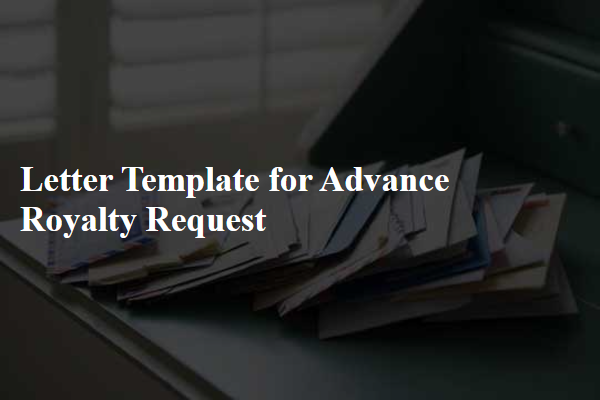
Clear and concise subject line
Advancing Royalty Request for [Project/Book Title]
Professional salutation and introduction
Requesting an advance royalty is a professional endeavor that requires a clear and concise approach. In the introduction, include your name and the title of your work, as well as a brief mention of its relevance or success. Specify the publisher or entity you are addressing, ensuring to maintain a respectful tone. Highlight your previous collaborations or achievements related to the project, establishing credibility and the rationale for the advance request.
Specific details of the royalty agreement
Authors frequently negotiate specific royalty agreements with publishers, dictating payment terms for book sales. A common arrangement includes a percentage of net sales, often ranging from 10% to 15% for hardcover editions and 5% to 7% for paperback versions. Advance royalties, typically paid before publication, may vary significantly based on the contract; some authors might secure advances from $5,000 for debut works to more than $100,000 for established authors. The agreement may also specify sales thresholds, such as a payment structure that releases additional royalties upon crossing benchmarks like 5,000 or 10,000 copies sold. Publishers usually specify the payment schedule clearly, outlining the intervals for advance royalty distributions, which might occur quarterly or semi-annually based on sales reports. This contractual detail is crucial, as understanding the precise figures and timelines can significantly impact the author's financial planning and project viability.
Justification for advance request
Authors and creators often seek an advance royalty payment to support their work during the production process. An advance provides necessary financial stability, allowing the author to dedicate time and resources to research, writing, and editing a manuscript. For instance, anticipated expenses such as research trips, professional editing services, or technology upgrades can sum up to several thousand dollars. Additionally, an advance on royalties can serve as a form of financial security, particularly for debut authors who may not have a steady income stream from previous works. Publishers evaluate potential market trends and sales projections, weighing the author's track record along with the manuscript's unique selling points. This financial arrangement fosters a partnership between authors and publishers, ensuring commitment from both parties towards a successful publication.
Polite closing and contact information
Requesting an advance royalty serves as a vital step for artists and authors to secure financial support prior to the release of their work. Advance royalties usually signify a portion of future earnings, helping creators manage costs associated with production, marketing, and distribution. To maximize the likelihood of approval, it is essential to provide clear projections regarding expected sales and outline how the funds will be utilized. Artists can also mention past successes or notable works to bolster their case. Clear, polite communication, along with comprehensive context about the creative project and potential market reach, can lead to fruitful discussions about financial arrangements, ensuring a successful partnership for both parties involved. Note: Always include your name, title, and current contact information, such as phone number or email, for easy follow-up.

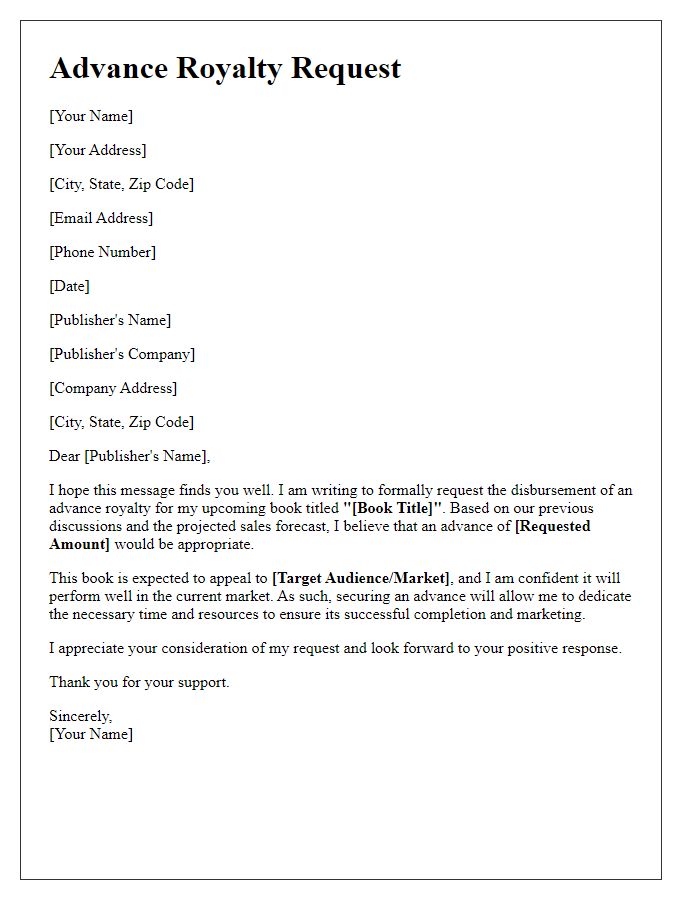
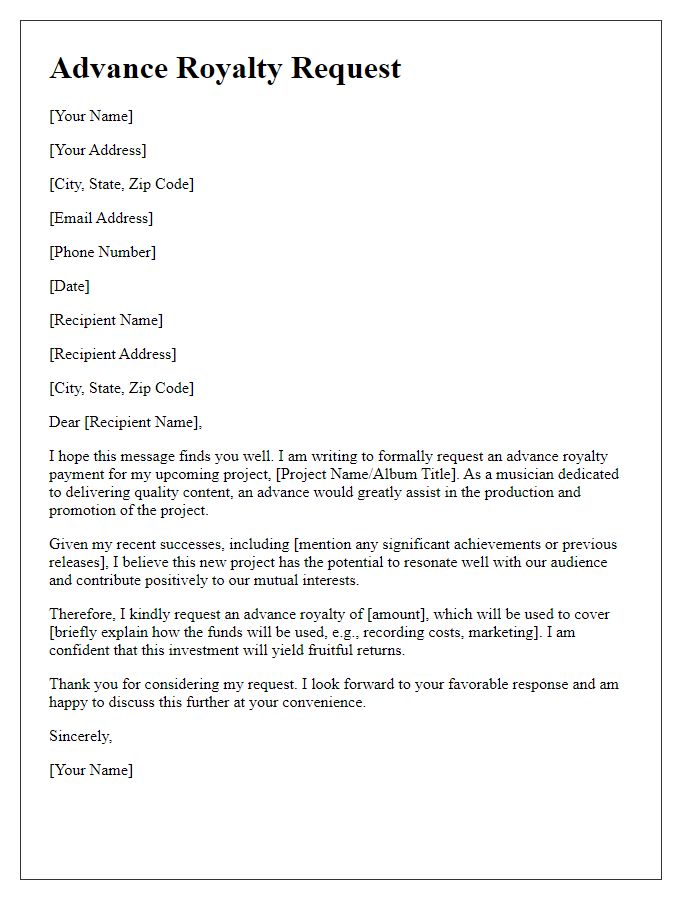
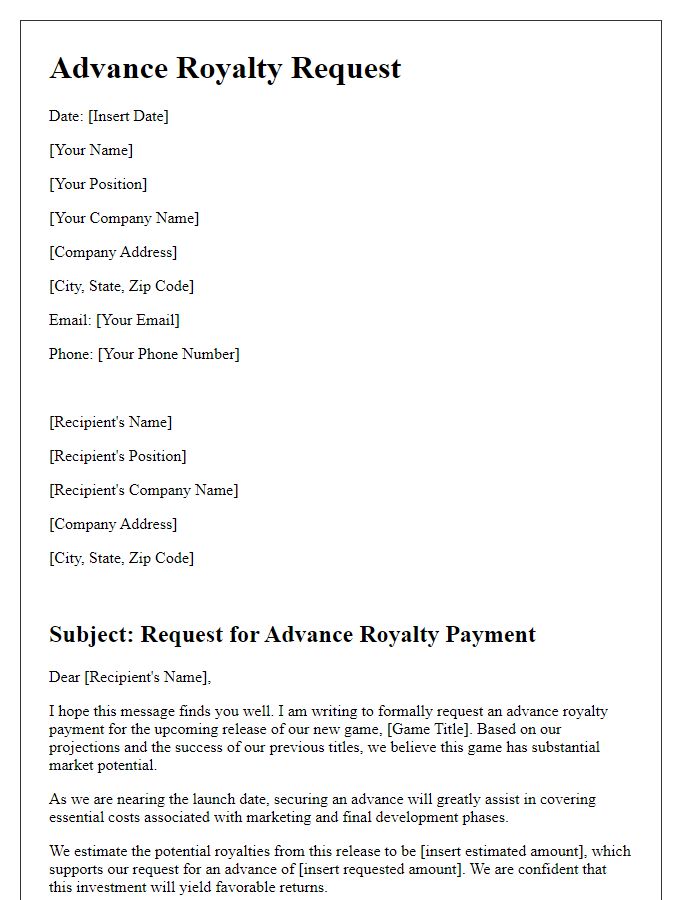
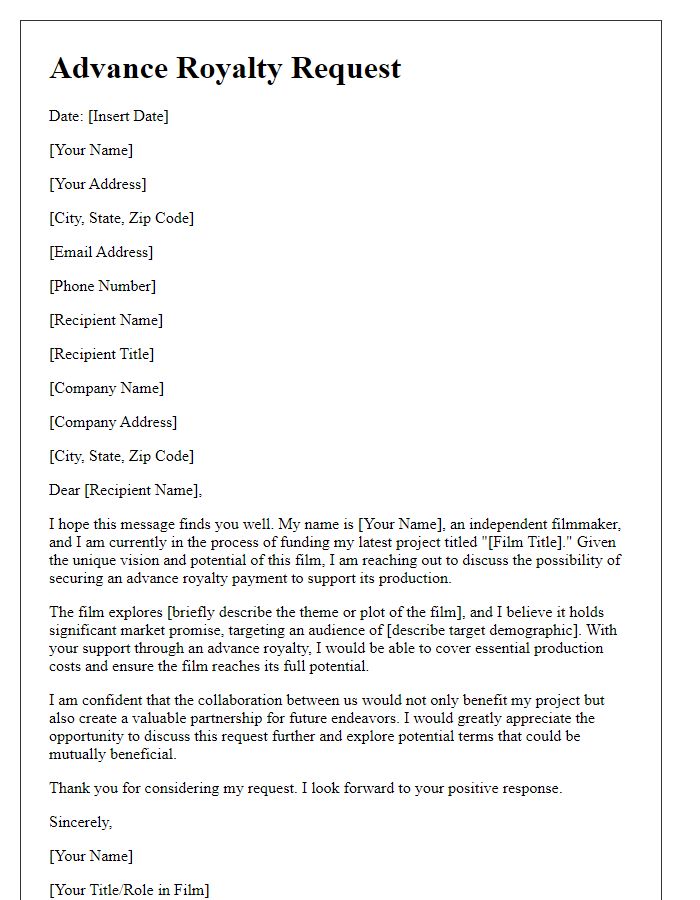
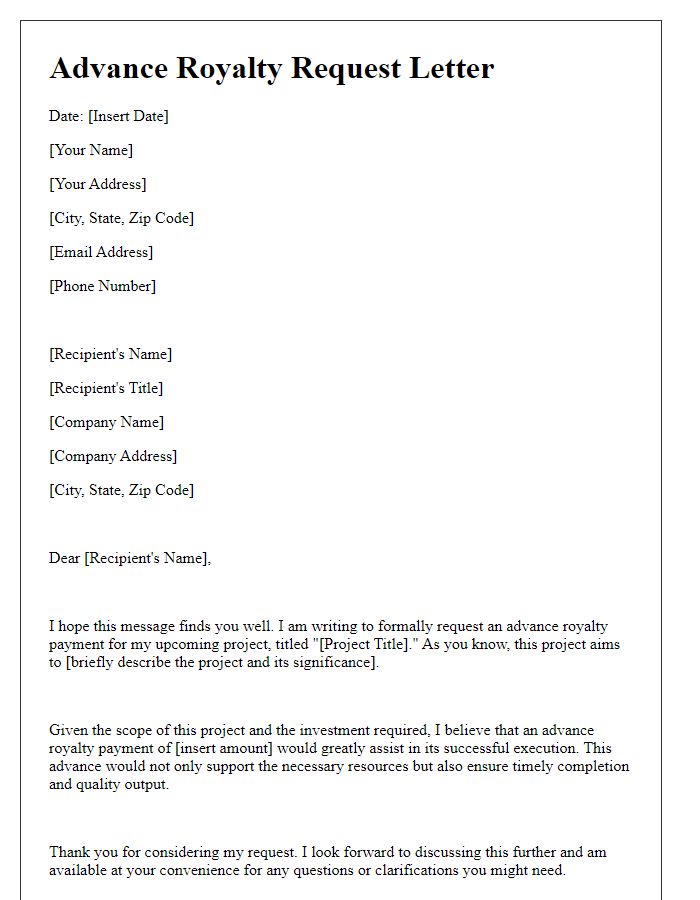
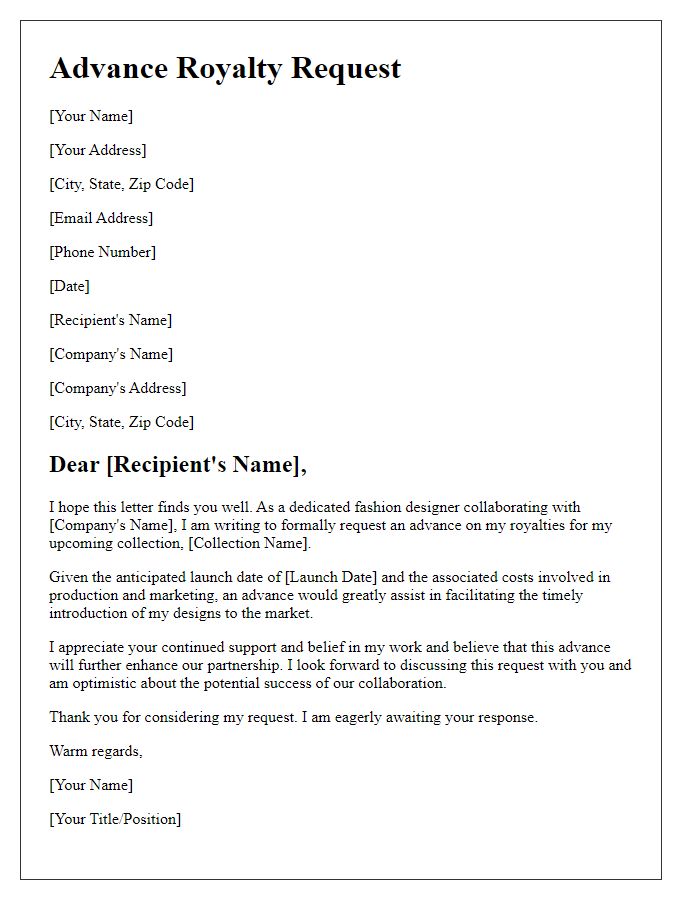
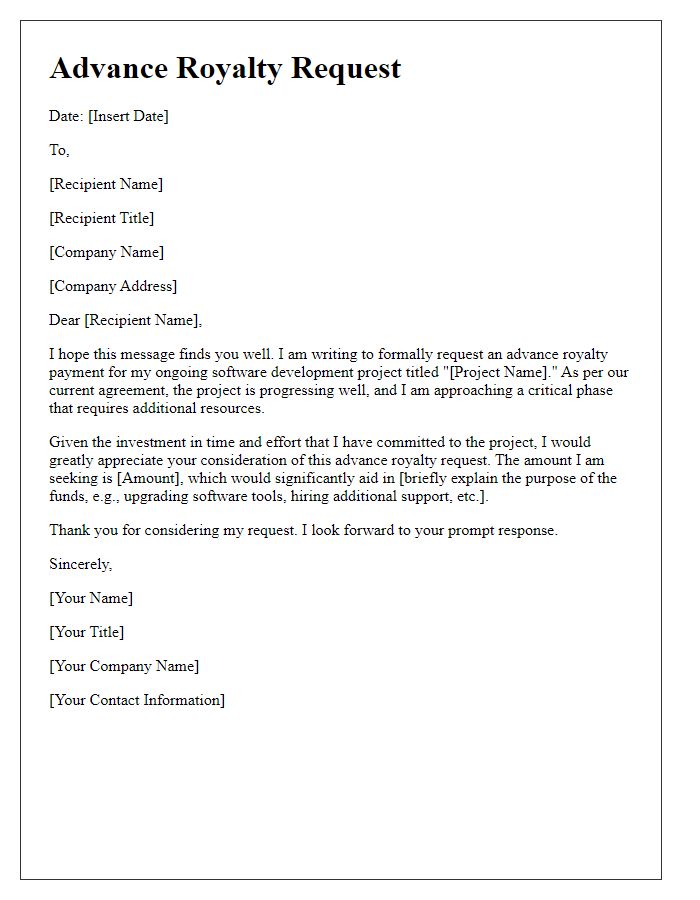
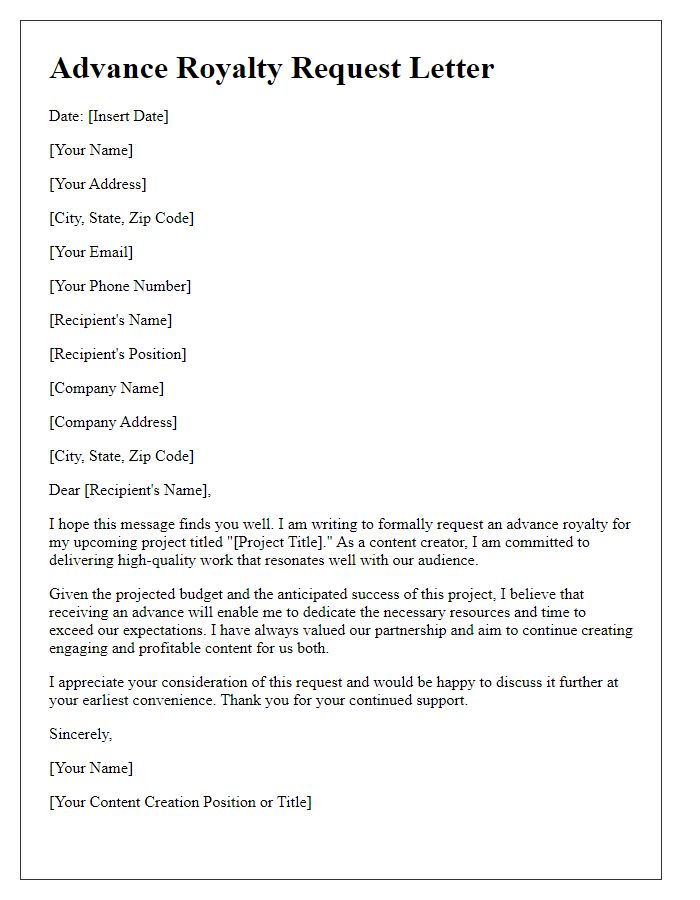

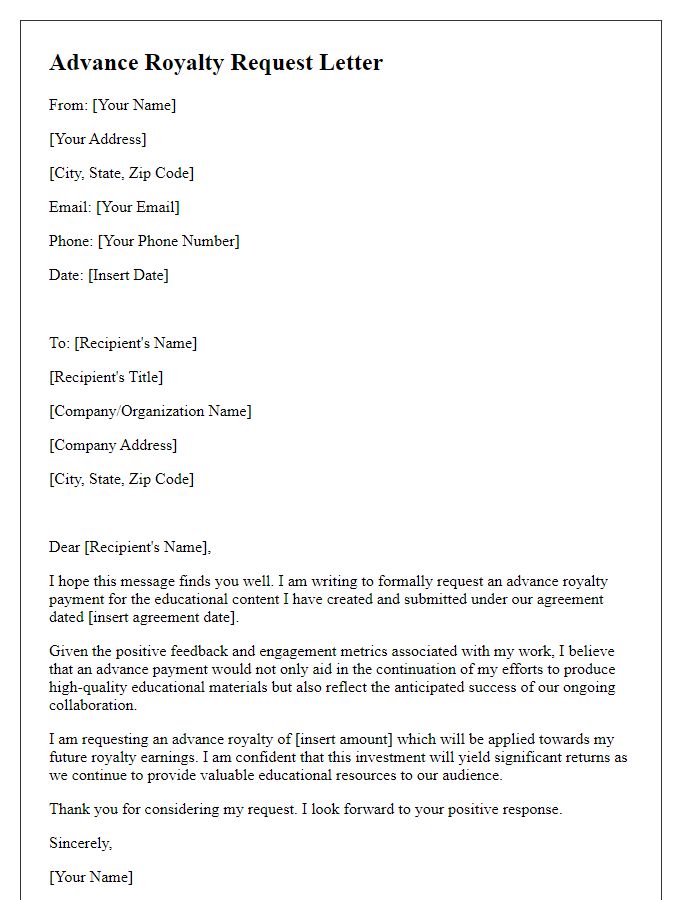

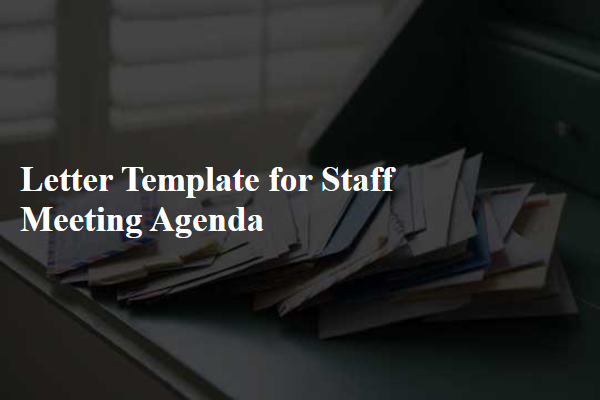
Comments